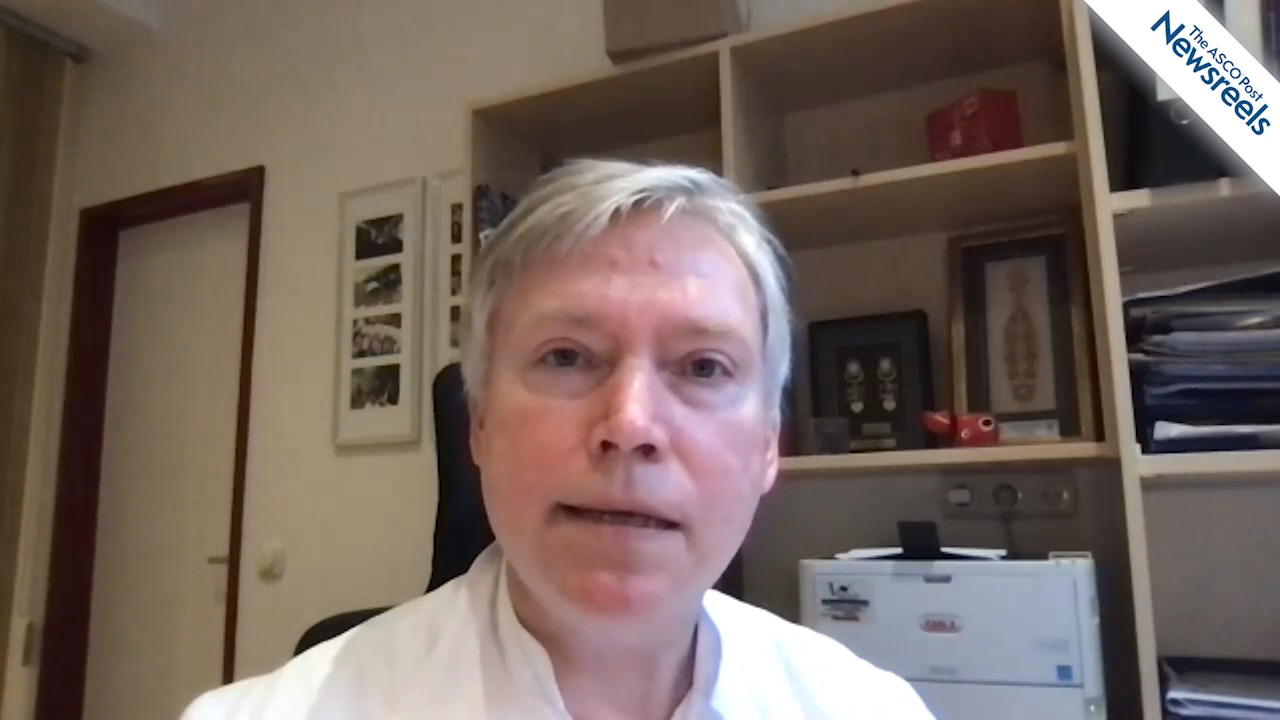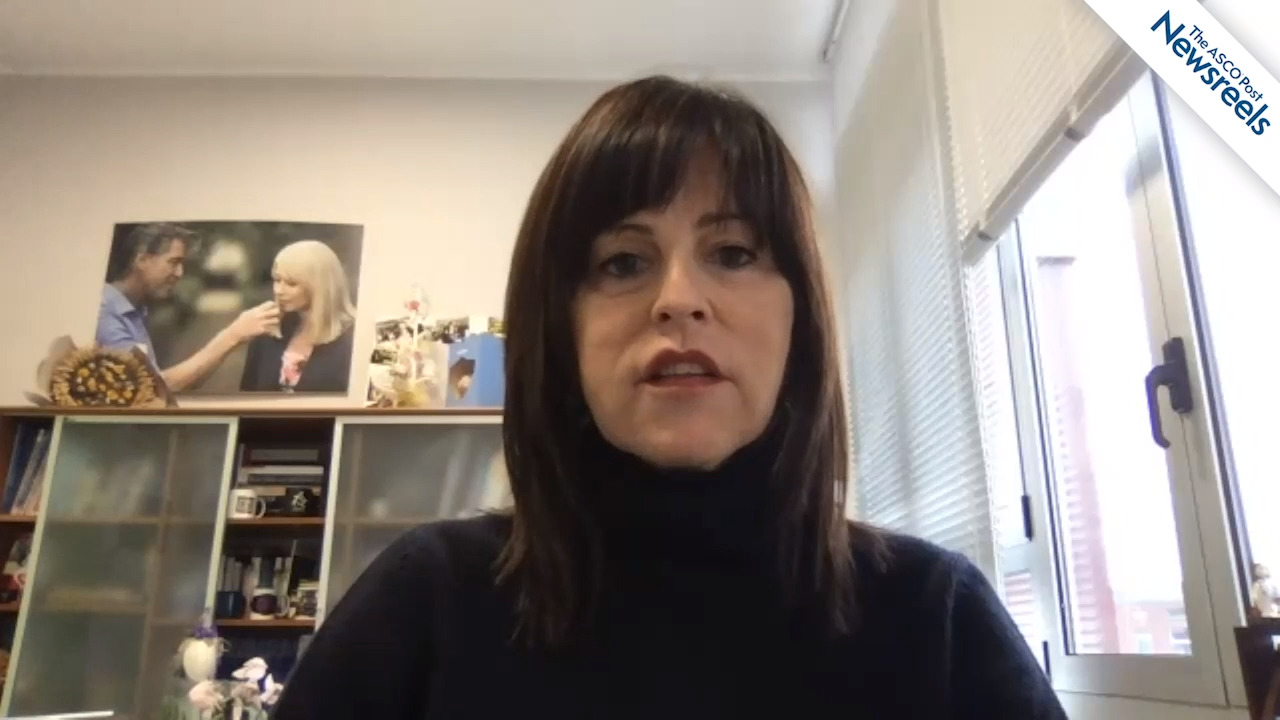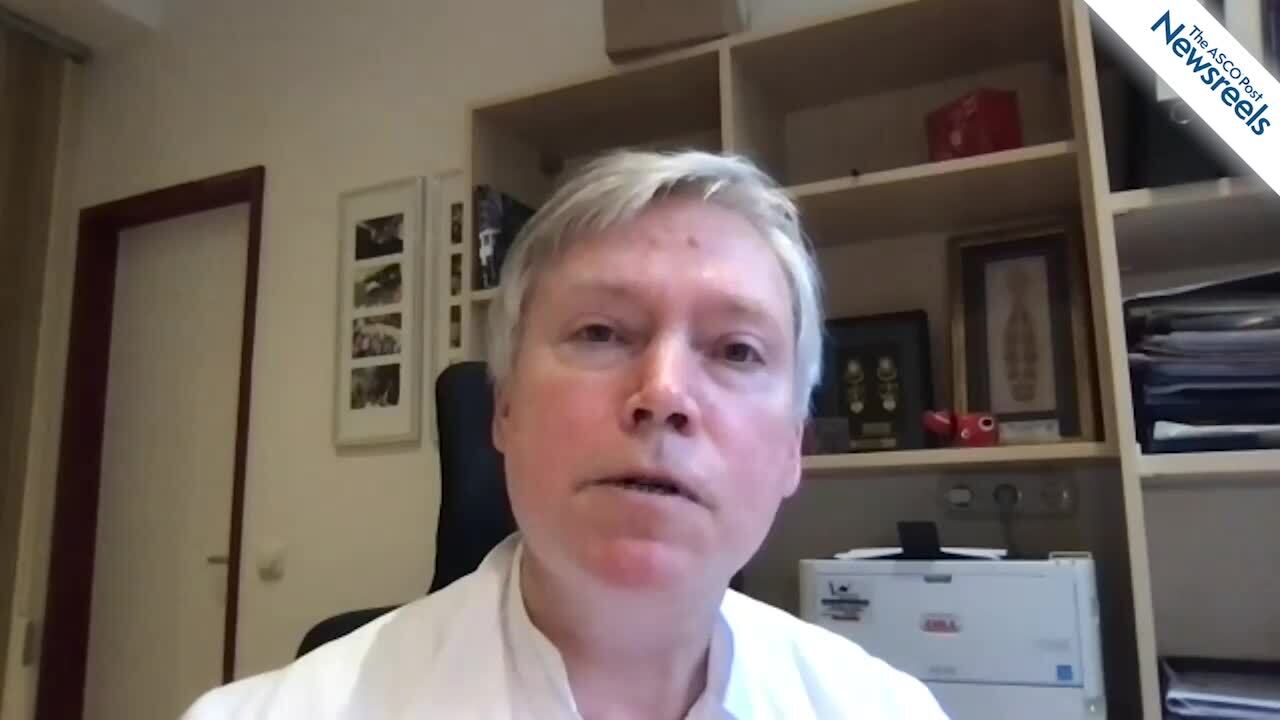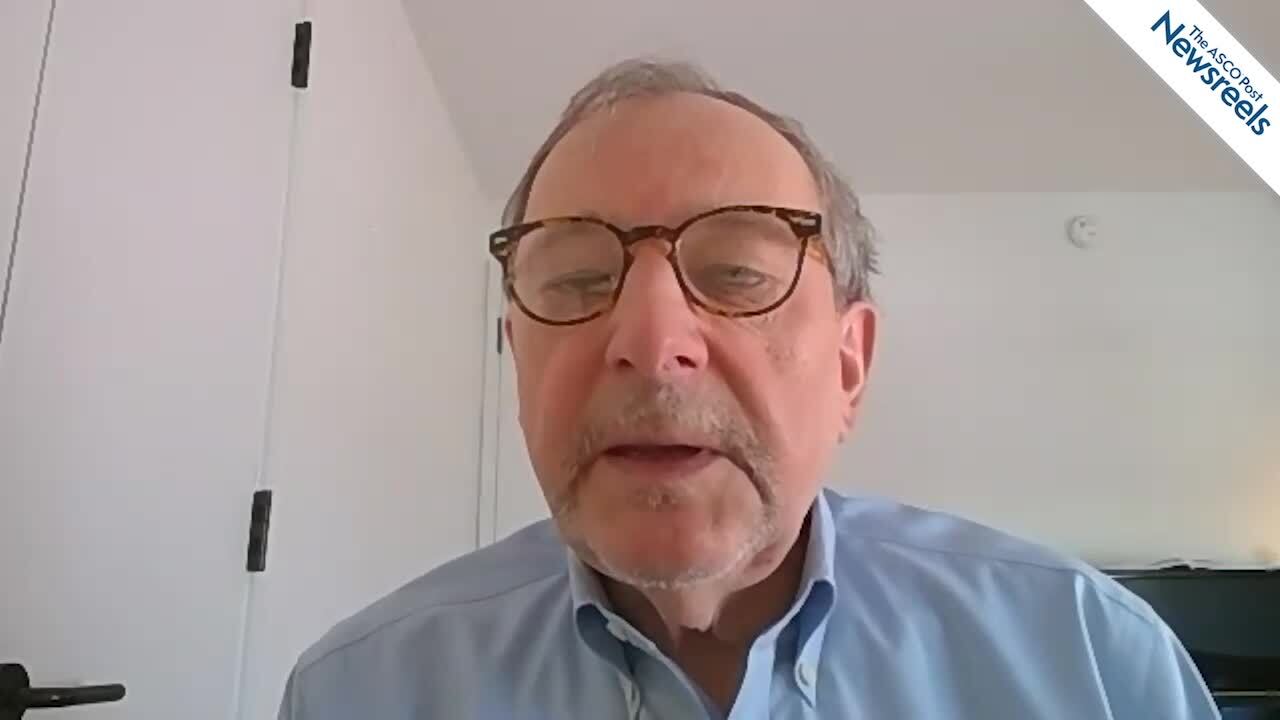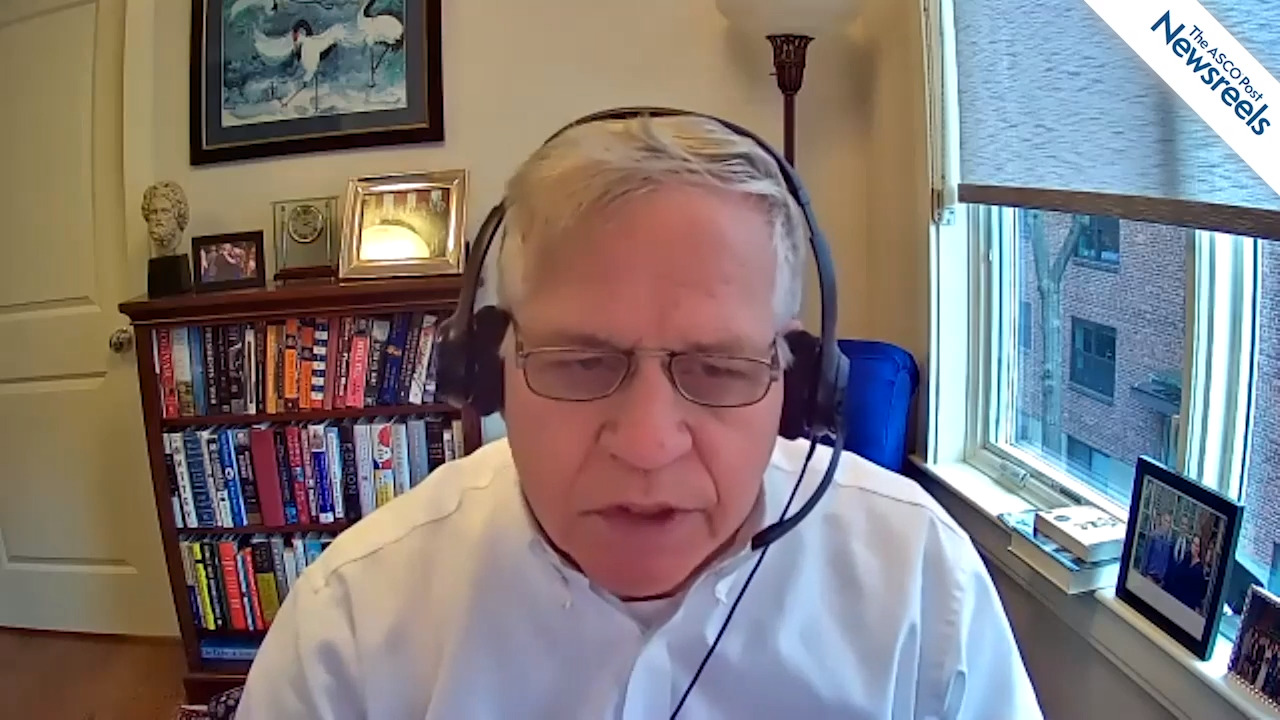Giorgio V. Scagliotti, MD, PhD, on Doubling the Lung Cancer Cure Rate by 2025: A Realistic Goal
IASLC 2020 World Conference on Lung Cancer in Singapore
Giorgio V. Scagliotti, MD, PhD, of the University of Torino, talks about why he believes that many more patients with lung cancer can be cured within the next 4 years, given decreases in mortality rates, widespread use of targeted treatments and immunotherapies, and earlier diagnoses as a result of systematic screening with low-dose CT (Abstract PL05.08).
The ASCO Post Staff
Martin Reck, MD, PhD, of LungenClinic, discusses results from the IMpower133 study of carboplatin plus etoposide with or without atezolizumab in patients with untreated extensive-stage small cell lung cancer (Abstract OA11.06).
The ASCO Post Staff
Silvia Novello, MD, PhD, of the University of Turin, discusses phase III results from the ITACA trial, which explored the notion of improving survival by customizing treatment and reducing toxicities for patients with completely resected stage II to IIIA non–small cell lung cancer (Abstract PS01.04).
The ASCO Post Staff
Martin Reck, MD, PhD, of the LungenClinic, discusses the results from KEYNOTE-799, which explored a new strategy to increase the intensity of treatment in patients with unresectable, locally advanced, stage III non–small cell lung cancer (Abstract OA02.03).
The ASCO Post Staff
Fred R. Hirsch, MD, PhD, of Mount Sinai Medical Center, invites his colleagues to enroll their patients in a large prospective study, for which he serves as Principal Investigator. The study is searching for solutions for treating patients with lung cancer who also have the coronavirus, because so many experience an aggressive course of infection.
The ASCO Post Staff
Bruce E. Johnson, MD, of Dana-Farber Cancer Institute, offers his expert perspective on single-arm drug approvals for targeted agents between 2016 and 2020, the need for biomarker testing, and the societal costs of drug development (Abstract PL04.03).
